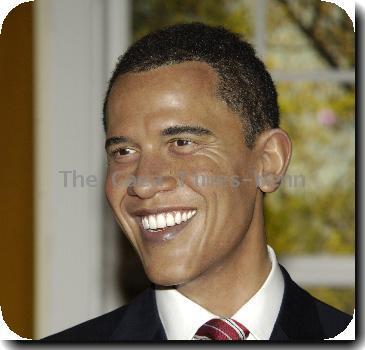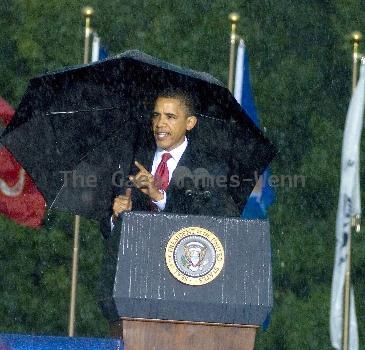Questions about National Guard response to domestic emergencies roil state-Pentagon relations
By APSunday, June 6, 2010
Some states chafe at Pentagon control in disasters
MONTPELIER, Vt. — When squabbling between Louisiana’s Democratic governor and the Republican Bush administration delayed some troops getting to New Orleans after Hurricane Katrina, many blamed raw politics.
But nearly five years later, as another calamity — the BP oil spill — grips the Gulf region, questions linger about who’s in charge when both state National Guard personnel and federal troops are called to respond to disaster.
Now Vermont Gov. Jim Douglas, chairman of the National Governors Association, has assumed leadership of a panel created by Congress to try to resolve the questions. President Barack Obama asked Douglas and Washington Gov. Christine Gregoire to co-chair the panel known as the Council of Governors, which is set to hold its second meeting with Pentagon officials next month.
“It’s Katrina fallout, I think, where things were not handled very well in Louisiana,” Douglas said in an interview. “I believe we can’t have Guard forces and reservists under different commanders in a state during a flood. … An argument can be made for unity of command and they (Pentagon officials) obviously want it in their direction and we want it in ours and that’s what we’re talking about.”
The roles of the federal and state governments in military affairs have been debated since the nation operated under the Articles of Confederation in the 1780s and 11 states had their own navies. The Constitution gave the federal government dominance, and states occasionally have chafed under that yoke ever since.
Since Katrina, Republican Gov. Bobby Jindal has replaced Kathleen Blanco in Baton Rouge, while Obama, a Democrat, has replaced Bush in the White House. The positions of the states and the Pentagon haven’t changed, officials said.
“It does transcend politics. You have issues that go back to the founding of our country,” said David Coriell, a spokesman for the Republican Douglas.
The Pentagon won a round in 2007 when Congress passed a defense authorization bill giving more federal control over domestic emergencies. Governors have been pushing back hard, with Gregoire among the most outspoken.
“These changes dramatically alter the federal-state relationship and threaten my ability to fulfill my constitutional duty as commander in chief of the state’s militia during emergencies,” she wrote of the 2007 law. Under it, “the president will have authority to federalize Washington’s National Guard to respond to domestic emergencies in another state, even when the Guard’s presence is needed here.”
Lt. Col. Les’ Melnyk, a Pentagon spokesman, said there had been times, during hurricanes and the Los Angeles riots of 1992 that followed the police beating of Rodney King, when the federal military had taken command in domestic emergencies. But generally, state National Guard and federal Army Reserve units can operate under separate command but in a coordinated fashion, he said.
The president would federalize the National Guard for domestic emergencies “only in rare, catastrophic circumstances,” Melnyk wrote in an e-mail. At a February meeting with the Council of Governors, the Department of Defense “introduced an initiative to improve unity of effort that respects the separate state and federal military chains of command. Dialogue between the department and the governors is ongoing.”
Melnyk could not provide a precise breakdown of how much federal and state money is spent on the states’ National Guard troops, but said federal government pays the bulk of those costs.
When the Council of Governors and federal officials meet in July, they may have new matters to discuss. Friction between state and federal authorities over disaster response appears to be rearing its head again, and in the same region where it flared after Katrina.
Louisiana officials have been expressing dismay in recent weeks at what they see as the slowness of the U.S. Army Corps of Engineers to approve plans to dredge along some areas of the state’s coast and build up others in a bid to minimize the amount of oil reaching coastal wetlands.
The state’s attorney general, Buddy Caldwell, wrote to the Army Corps in May to say he hoped it would avoid a court fight over “petty jurisdictional concerns” if the state goes ahead without a permit from the agency to dredge and fill areas between barrier islands and build up sand dams on the islands in an attempt to block the oil.
Jindal, meanwhile, said the work could go ahead under an emergency order he had issued.
Tags: Barack Obama, Emergency Management, Louisiana, Military Affairs, Montpelier, North America, United States, Vermont



